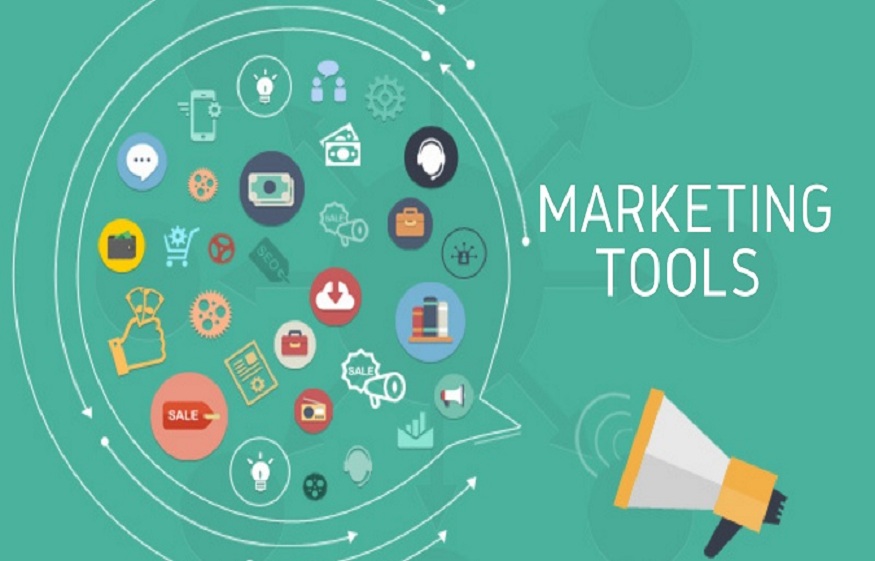An Effective Digital Start-Up Toolkit for Successful Launch and Growth
Starting a new business is an exciting and inspiring time for entrepreneurs. Working for yourself, setting your own agenda, and carving out a profitable future for your new company can be an exhilarating yet daunting prospect. Almost one in five new businesses fail in the first year. Current economic trends, such as rising inflation, economic uncertainty, and a tightening labor market, intensify the challenges new enterprises face. Few businesses are completely recession-proof, but accessing the right tools in a start-up digital toolkit helps you build efficient processes, safeguard your new endeavor, and stay ahead of the competition. This article highlights some essential start-up tools and emphasizes the importance of a strong technology stack foundation to support marketing, customer relationship management, and business intelligence activities.

Get the Basics Right From the Beginning
Prelaunch ideation tools help you focus product development and explore ways to package your value proposition. Your vision and strategies effectively position your brand, and a robust business plan is key. How will you reach your customers at the right time and in the right way to meet your goals? Your plan defines your market niche and uses budget forecasts and cash flow expectations to pinpoint critical milestones for growth and success.
A new business needs organization and efficient business processes to quickly deliver a brand promise and meet the needs of customers. Some start-ups lack the right tools within their business model to accelerate their growth and success, while others focus too heavily on exponential growth before nailing the basics. Neglecting the importance of reliable and integrated digital documentation procedures and structures is an easy mistake to make. Thorough documentation and updating of your business plan, processes, and milestones is essential.
Put Documentation on the Right Track
A reliable, convenient, and easy-to-use system of file creation, storage, and manipulation is a solid foundation. Use of PDFs can be important when working across platforms and software to ensure digital integrity of the product. Move smoothly between PDF, JPG, PPT, and other file formats, and use the Adobe editor tool to make changes to PDF files, including page reordering, deletions, and insertions.
Choose the Right Project Management Tools
Your business plan outlines your desired approach to day-to-day operations and technical issues across all areas of operations, from product development to marketing and logistics to employee and customer management. Low-cost and free online tools for project management, bookkeeping, and budgeting are a boon for new start-ups. Start with a flexible and mobile-friendly website with refreshing and compelling messaging. A clear and intuitive off-ramp for customers and a secure online payment mechanism go a long way toward delivering a safe and reassuring customer experience. Stay on top of your budget and monthly cash flows with tools to help you issue invoices quickly, avoid late payments, and keep appropriate inventory on hand.
Present a Consistent Brand Message
Your brand is your promise, and synchronizing branding and marketing activities helps present a consistent and coherent message across platforms. Reach a larger audience with a combination of local conventional advertising initiatives and optimized web and social media content. The best marketing strategies employ multiple avenues to nurture a strong and meaningful sentimental bond with customers. Online logo makers and automated email tools are excellent resources to help standardize marketing content and internal communications. Experiment with available templates and designs to best showcase your preferred style, color scheme, and message content.
Many businesses find an email newsletter useful to keep customers in the loop and support customer acquisition, retention, and long-term loyalty initiatives. Effective start-up newsletters contain compelling stories, advanced graphics, and animations to stimulate a positive emotional response and facilitate readers’ desire to go deeper, learn more, and eventually patronize the business.
Customize Your Data Analytics Dashboard
Market segmentation data and customer surveys help clarify who your customers are and what they really think and feel about your brand. Broad measures of customer satisfaction and sales are a good first step. An increasing number of small businesses employ a customized data analytics dashboard to inform and shape critical business intelligence decisions, such as timing of sales events, how much inventory to keep on hand, or tweaks to brand messaging.
As a successful entrepreneur, you may rely on your intuition and market smarts, but don’t stop there. Interpret analytics combining financial indicators, operating statistics, and sales data to gain insight into future trends. Data on customer experience and brand awareness, competitor performance, supply chain logistics, and related market niche information allow you to better align your business with customer needs. Make adjustments to product development, inventory levels, and specialized marketing actions, such as discounts and events, with more confidence and better results. For example, use analytics combining customer demographics and behavior, customer lifetime value, and big data consumer trends to bookend your sales predictions and model future scenarios. Extend your forecast beyond the current market and lifestyle conditions to target new market segments based on geographic location, seasonal consumer behavior, and macroeconomic patterns.
Bring It All Together
Reliable and trusted tools in your digital startup toolkit are crucial for a successful launch and expansion of your new business enterprise. Build a tech-smart technology foundation for your start-up from the ground up, then smoothly integrate specialized data analytics and online software to meet your operating and business intelligence needs.



